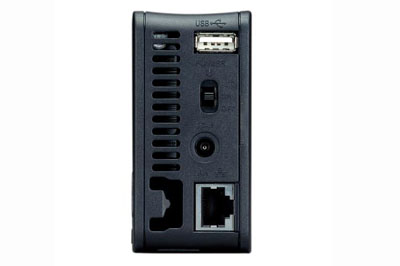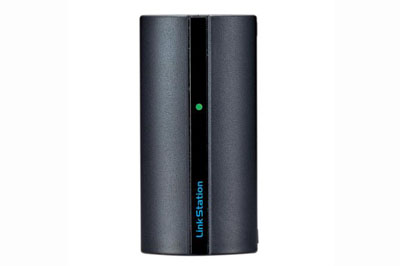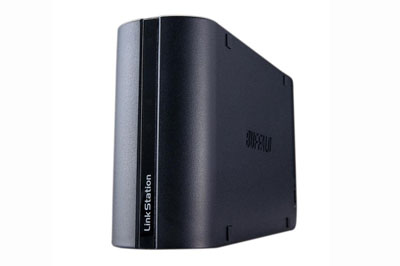Buffalo LinkStation Mini SSD - NAS review
Buffalo has fitted solid state drives to its latest NAS, which might tempt business users looking to save power. But does the Buffalo LinkStation Mini SSD offer any genuine real-world benefits?
We wanted to like Buffalo's LinkStation Mini SSD. It's simple to configure, compact and power-efficient, but it's no more energy efficient than the hard disk-based version of the LinkStation. It isn't any faster than its predecessor at copying files either and is in fact very slow compared to other NAS devices. Its disks aren't designed to be user serviceable either. In short, it doesn't have any advantages over its hard disk-based predecessor but costs almost twice as much making it a very expensive dud. If you must have a compact, power-efficient NAS, our recommendation is Synology's DS409 Slim. It isn't much bigger, has four easily accessible hard disk sleds, is very quiet and is much quicker at copying files when fitted with standard hard disks.




Buffalo LinkStation Mini SSD
Price and performance aren't the only factors to consider when purchasing IT equipment. Other factors, such as the amount of power consumed by the device, how much noise is generated and the amount of space it takes up can be just as important. These issues are especially important for NAS devices since they're designed to be left running all the time.
Buffalo clearly had these factors in mind when designing the LinkStation Mini SSD. It is small enough to easily slip into a handbag making it one of the smallest NAS devices we've seen, so it'll take up very little space no matter where you place it. It's also the first NAS we've seen to come fitted with solid state disks (SSDs), which tend to consume less power than conventional hard disks.
This LinkStation is actually Buffalo's second attempt at creating a tiny, energy-efficient NAS a previous version of the Mini was fitted with two 500GB hard disks and is still available for around 207 excluding VAT. So is the SSD version worth buying over its hard disk-based predecessor and other NAS devices?
The LinkStation is fitted with two 120GB SSDs, which can be configured as either RAID 0 or RAID 1. The LinkStation is sealed, so it will have to be sent back to Buffalo for service in the event of a disk failure. This is far from ideal if the LinkStation is your business' only NAS. During our tests over several weeks, a SSD did indeed fail - twice - requiring replacement.
We had our doubts about the potential performance boost from having SSDs instead of hard disks fitted in a NAS, since the performance bottleneck is usually its processor or network connection and not its storage disks. Our file transfer tests confirmed our suspicions the SSD Mini copied files at almost exactly the same speeds as its hard disk-based predecessor.
Both large and medium-sized files were copied at an average speed of 12MB/s. This is not very fast compared to other similarly priced NAS devices we've seen, but it's satisfactory for relatively small amounts of data copied intermittently. Small files were copied at an almost unusably slow speed of 2MB/s which is slower than some USB flash drives.
The LinkStation consumed 8W of power when sitting idle and 10W of power when transferring files. This compares very favourably to other NAS devices we've seen some can consume only a few watts more while others can consume nearly three times as much. However, on the downside these power consumption figures are nearly identical to those for the hard disk-based version of the LinkStation.
Get the ITPro daily newsletter
Sign up today and you will receive a free copy of our Future Focus 2025 report - the leading guidance on AI, cybersecurity and other IT challenges as per 700+ senior executives
Benny Har-Even is a twenty-year stalwart of technology journalism who is passionate about all areas of the industry, but telecoms and mobile and home entertainment are among his chief interests. He has written for many of the leading tech publications in the UK, such as PC Pro and Wired, and previously held the position of technology editor at ITPro before regularly contributing as a freelancer.
Known affectionately as a ‘geek’ to his friends, his passion has seen him land opportunities to speak about technology on BBC television broadcasts, as well as a number of speaking engagements at industry events.
-
 Westcon-Comstor and Vectra AI launch brace of new channel initiatives
Westcon-Comstor and Vectra AI launch brace of new channel initiativesNews Westcon-Comstor and Vectra AI have announced the launch of two new channel growth initiatives focused on the managed security service provider (MSSP) space and AWS Marketplace.
By Daniel Todd Published
-
 Third time lucky? Microsoft finally begins roll-out of controversial Recall feature
Third time lucky? Microsoft finally begins roll-out of controversial Recall featureNews The Windows Recall feature has been plagued by setbacks and backlash from security professionals
By Emma Woollacott Published
-
 The UK government wants quantum technology out of the lab and in the hands of enterprises
The UK government wants quantum technology out of the lab and in the hands of enterprisesNews The UK government has unveiled plans to invest £121 million in quantum computing projects in an effort to drive real-world applications and adoption rates.
By Emma Woollacott Published